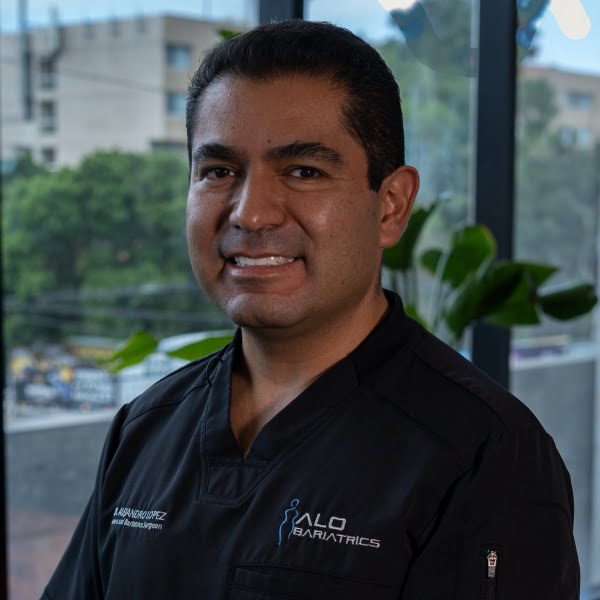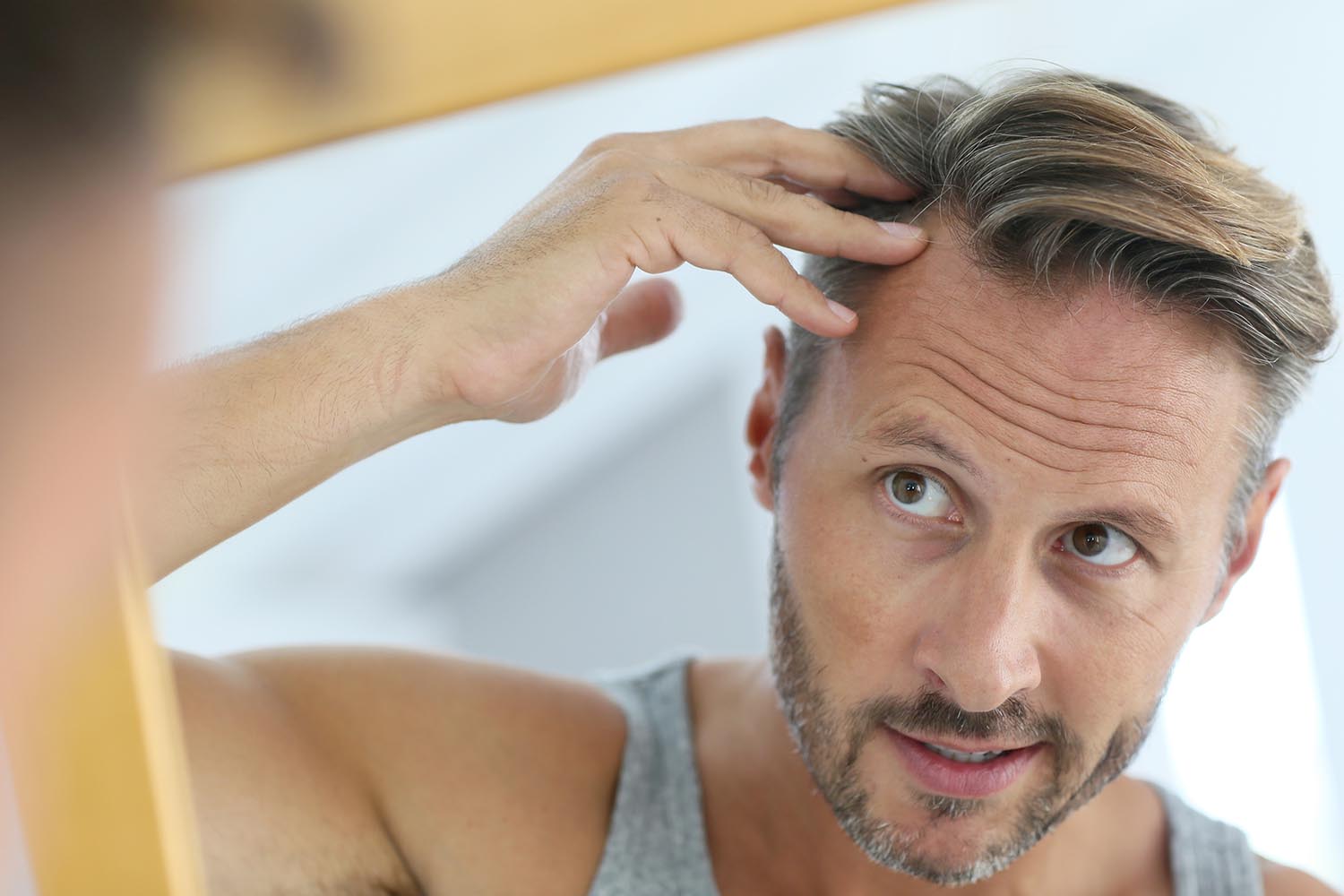How to Prevent Hair Loss After Bariatric Surgery
Many people who recover from bariatric surgery experience some degree of hair loss. Up to 50% of patients experience hair loss after bariatric surgery within the first 12 months. While it is a temporary condition, short-term hair loss can be a stressful situation for many patients.
There are steps you can take to help minimize hair loss if you’re concerned about this potential outcome. Read more about hair loss after bariatric surgery below.
Is Hair Loss After Bariatric Surgery Normal?
No matter which type of bariatric surgery you have, side effects include the potential for hair loss, which can be a frustrating but common occurrence. Most patients who experience hair loss will notice the problem within the first few months of having the surgery.
After six months to a year, the chances of developing hair loss decrease, and you should start experiencing normal hair growth. Fortunately, any hair loss is temporary. If you’re concerned about what to expect after bariatric surgery, reach out to one of our representatives today for added clarification.
What Causes Hair Loss After Weight Loss Surgery?
Your body is under a significant amount of stress from the initial procedure, which causes stress chemicals to increase in your bloodstream. As a result, your hair can stop growing, and older hair can become dormant. Dormant hair stops receiving nutrients, becoming fine and brittle, potentially falling out. The medical term for this type of hair loss is telogen effluvium.
Even as you recover from your surgery, your body will continue to change. Your body will have been used to carrying excess weight, possibly for an extended time. When you lose a lot of weight and do it quickly, it’s stressful for your body. The presence of stress chemicals can reroute nutrients that normally are delivered to your scalp to other areas of the body, and your hair can suffer, becoming thinner in some areas.
Whether you receive a gastric sleeve procedure or gastric bypass, your digestive system might also change. As food makes its way through the digestive system, nutrients are absorbed from the solid foods and liquids you take in. When you have bariatric surgery, food may move through your digestive system faster than what your body is used to. When nutrients pass through your digestive system quickly, you may not absorb the nutrients in the food/liquid efficiently. This, too, can lead to hair loss from bariatric surgery.
Common types of nutrients that may be low after surgery are:
- Zinc
- Iron
- Protein
- Vitamin A
- Vitamin C
- Vitamin B6
- Vitamin B12
Tips for Minimizing Hair Loss After Your Weight Loss Surgery
It’s unnerving for many to hear that hair loss is a risk, but there are some steps you can take to help prevent or minimize hair loss after bariatric surgery:
Increase Protein: Making sure you get enough nutrients after your bariatric surgery is key in preventing hair loss. Protein is a macronutrient and helps to support and develop the structures that keep hair follicles healthy and strong. ALO Bariatrics will have you work with one of our dieticians to calculate how much protein you should be consuming daily. If you mention that hair loss is a concern to your dietician, they may have you increase the amount of protein you consume.
Add Micronutrients (Vitamins): These are smaller molecules that have nutritional value and are important for the healthy function of hair follicles and growth. You should only take micronutrients as directed by your dietician or surgeon. Micronutrient deficiencies can contribute to the amount of hair you lose and the rate at which you lose it. Talk to your dietician or surgeon about what the best vitamins for hair loss after bariatric surgery are, including:
- Iron – Increases oxygen delivery to your scalp
- Zinc – Needed for creating new hair
- Vitamin B Complex – Strengthens and conditions hair
- Vitamin C – Increases circulation in the scalp
- Keratin – If you can’t intake enough protein, consider adding Keratin
This list doesn’t include all of the nutrients involved in hair loss prevention, so be sure to speak with your dietician for more information.
Routine Health Screenings: There can be other causes of hair loss unrelated to bariatric surgery. Problems with your thyroid or adrenal glands are just a few examples of other causes of hair loss. It’s important to follow up with your doctor when you’re back home so they can check for any significant changes in lab values. Your lab values may indicate a problem somewhere else in the body that is contributing to hair loss after bariatric surgery.
ALO Bariatrics is here to help you through your recovery. We have tools and compassionate caregivers available to answer any questions you may have. If you’re concerned about hair loss after bariatric surgery, let us know now so we can address it.
Will My Hair Grow Back?
If you do experience hair loss after bariatric surgery, you may be worried if it will ever come back. Your hair loss will slow down and then begin growing again, returning to normal over time. There’s no way to tell exactly when this will happen, but you can rest easier knowing that the hair loss will not be permanent. Talk to your doctor and nutritionist about ways to help prevent your hair loss after bariatric surgery.
When to Seek a Professional Opinion
If you are concerned about the amount of hair you are losing or still losing it more than a year after your bariatric surgery, contact your doctor. Your doctor may run additional tests to make sure the hair loss isn’t caused by other factors.
ALO Bariatrics is here for you even after your surgery. Don’t hesitate to call us if the need arises or if you have any questions.
The Bottom Line: What You Need to Know
Hair loss after bariatric surgery is a typical side effect and won’t be a permanent problem. It’s a short-term side effect that will resolve on its own. It’s even possible that you won’t experience any hair loss at all. ALO Bariatrics will work with you through your recovery if hair loss does become an issue for you. You can work with our dietician to build a diet and supplement routine to help you lose weight and reduce the risk of losing your hair.
Don’t let the fear of losing your hair be a barrier to getting surgery that will make you healthier and contribute to your overall well-being. Schedule a consultation today with one of our team members to explore your options for bariatric surgery with ALO Bariatrics.


Dr. Alejandro Lopez, the owner and lead bariatric surgeon at ALO Bariatrics, is a Fellow at the American College of Surgeons and is accredited with the American Society for Metabolic and Bariatric Surgery. He is also a certified bariatric surgeon by the Mexican College of Surgery for Obesity and Metabolic Diseases. He is one of two surgeons in Tijuana and one out of five to ten in all of Mexico who is able to provide robotic surgery.


